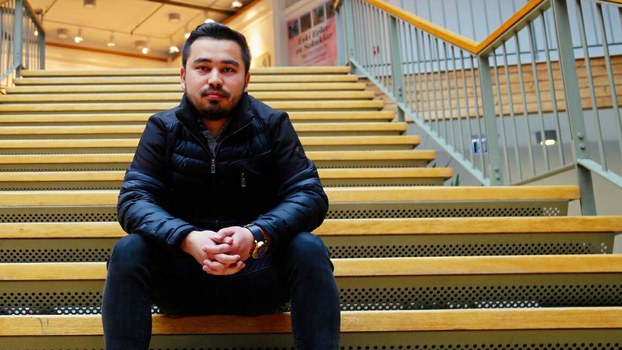Jewlan Shirmemet, a Uyghur who has lived in Turkey’s largest city Istanbul since 2008, had stayed silent about politics until around six months ago, when he began to speak out as part of a campaign to free his mother, Suriye Tursun, from arbitrary detention back home in China’s Xinjiang Uyghur Autonomous Region (XUAR). At the end of 2019, he learned that his mother was sentenced to five years in prison, while his father, Shirmemet Hudayar, and younger brother, Irpan Shirmemet, served a stint in the region’s vast network of internment camps, where authorities are believed to have held up to 1.8 million Uyghurs and other Muslim minorities since April 2017.
After beginning his campaign, Shirmemet was contacted in February by a staffer from the Chinese Embassy in Turkey who confirmed that Tursun had been jailed for allegedly “aiding terrorists,” without providing further details. The staffer also informed him that his father and brother were interned in 2017 but had since been released. Tursun, a 30-year veteran of the Korgas County Office of Business and Trade Administration who regularly received awards for being an outstanding employee, had traveled abroad once—in 2015 to see her son in Turkey, which has since been blacklisted for travel by Uyghurs because of a perceived threat of “extremism.” Shirmemet maintains his mother’s innocence and argues that Uyghur identity, not terrorism, is what authorities in the XUAR see as the gravest threat from the ethnic group.
On June 1, Shirmemet received an unexpected phone call from his father, who resides in Suydung (in Chinese, Shuiding) township, in Ili Kazakh (Yili Hasake) Autonomous Prefecture’s Korgas (Huocheng) county, after not having spoken with him for three years. During the call, his father scolded him for his activism and told him to halt his campaign for his mother’s release. He has also since received similar calls from his uncle and younger brother. Shirmemet recently spoke with RFA’s Uyghur Service about his suspicion that authorities forced his father to call him and how he will not be swayed from his mission to see his mother released from prison:
Shirmemet: I suspect they called me from either a national security office or a police station, because the call didn’t come from my father’s number. He also said, “I came [here] with your uncle and brother [suggesting that all three went to some location outside their homes].” If I’m talking with them on the phone, in real fact I’m actually talking with the police, because they’re talking through my father.
By forcing my father to call me, they’re trying to warn me to be quiet. They’re threatening me, more or less. To this I say: I will never be quiet. What would it mean for me to sit quietly by while they lock up my mother, who worked in government administration for 30 years, for nothing? How can I possibly be quiet when they have locked a woman up in prison for no reason at all?
‘I will fight to the end’
In [Turkey], people will come out to save a cat locked up in a cage. They have imprisoned my mother, and they must release her. I should be able to call and talk to her. I’m living in the 21st century, the technologies [for staying in touch] are very developed. We’re developing means of communication with other planets—it should be a source of national shame that we’re living here on this earth but still unable to talk with our family. I am the citizen of a country that has very developed technologies and yet I cannot have contact with my family. They are blocking it. Why else would my father tell me not to call?
I spent five years of my time in Turkey studying law … What good would it be to have studied in this field if I don’t do everything I can to protect the rights of my mother, my family? They can let me “talk” with my dad and try to tell me to be quiet, but they are actually trying to force me to be quiet. I will fight to the end for this. I will not be quiet until my mom, my dad, and my brother can live freely and openly, until we can speak freely and openly with one another, and until [my parents can] return to their normal lives.

